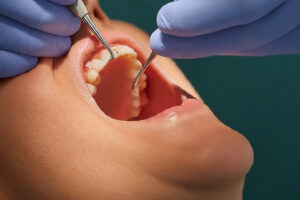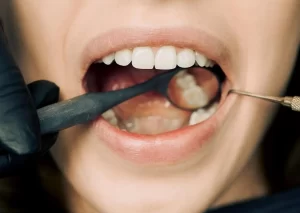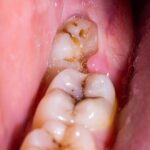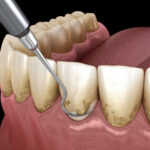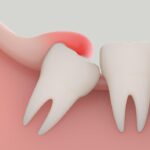Why Does Mouthwash Burn

Have you ever wondered why a swish of mouthwash leaves your mouth feeling like it’s on fire? You’re not alone.
Many of us reach for mouthwash seeking a clean, fresh feeling, only to be met with an unexpected burning sensation. This sensation can be both surprising and uncomfortable, leading some to question the safety and suitability of their mouthwash.
In this article, we’ll dive into the reasons behind this fiery reaction.
From the alcohol content to other active ingredients designed to kill bacteria and freshen breath, we’ll explore what causes mouthwash to burn.
Table of Contents
What Are the Main Reasons Why Mouthwash Burns?
The burning sensation experienced with mouthwash use can be attributed to several factors, ranging from the ingredients within the mouthwash itself to your oral health.
Here are the main reasons why mouthwash can burn:
- Alcohol content: Many mouthwashes contain alcohol (ethanol), which serves as an antiseptic to kill bacteria and as a solvent for other ingredients. However, alcohol can also dry out the mouth and irritate sensitive oral tissues, leading to a burning sensation.
- Essential oils: Ingredients like menthol, eucalyptus, and thymol are essential oils commonly found in mouthwashes for their antiseptic properties. While effective in controlling harmful bacteria, these oils can also cause a tingling or burning feeling, especially in higher concentrations.
- Chlorhexidine: This antiseptic is used in some prescription mouthwashes to treat gingivitis and periodontal disease. While effective, chlorhexidine can cause a burning sensation and is known for altering taste sensation temporarily.
- Sodium Lauryl Sulfate (SLS): SLS is a detergent that creates foam but can irritate the lining of the mouth, leading to discomfort and a burning sensation for some people.
- Acidity: Mouthwashes with a lower pH (more acidic) can irritate the mouth, especially if there are existing sores, cuts, or ulcers.
- Oral health conditions: Individuals with certain oral health conditions, such as mouth sores, gum disease, or recently performed dental procedures, may experience heightened sensitivity to mouthwash ingredients, resulting in a more pronounced burning sensation.
- Sensitivity or allergy: Some people may have a sensitivity or allergic reaction to specific ingredients in mouthwash, leading to irritation and burning.
Dental Issues and Mouthwash
Using mouthwash is a popular adjunct to daily oral hygiene routines, offering benefits like reducing plaque, freshening breath, and killing harmful bacteria.
Yet, the interaction between dental issues and mouthwash can be complex, with certain conditions making the oral environment more sensitive or even reactive to mouthwash ingredients.
Sensitivity and Gum Disease
Individuals with sensitive teeth or gums, often a result of receding gum lines exposing the dentin or due to gum disease, may find that certain mouthwashes exacerbate their discomfort.
Alcohol-based mouthwashes, in particular, can cause a significant burning sensation and dryness, potentially worsening sensitivity.
Gum disease, characterized by inflamed and bleeding gums, creates an environment where the alcohol and other harsh ingredients in mouthwashes can irritate.
Mouth Sores and Ulcers
For those prone to developing mouth sores or ulcers, using a mouthwash containing irritants like alcohol, sodium lauryl sulfate (SLS), or even certain essential oils can be painful. Such ingredients can irritate the sores further, delaying healing and increasing discomfort.
Dry Mouth (Xerostomia)
Dry mouth, whether due to medication, certain health conditions, or as a side effect of dehydration, can be aggravated by mouthwashes containing alcohol.
Alcohol is a desiccant, which means it can dry out the mouth further, exacerbating the symptoms of dry mouth and potentially leading to an increased risk of tooth decay and gum disease, as saliva plays a crucial role in neutralizing acids and washing away food particles.
Choosing the Right Mouthwash
If you suffer from dental issues like sensitivity, gum disease, mouth sores, or dry mouth, you’ll need to pay extra attention to choosing the right mouthwash.
Alcohol-free mouthwashes, the ones formulated for sensitive mouths, or therapeutic mouthwashes containing ingredients like fluoride or chlorhexidine (for specific dental conditions as prescribed by a dentist) can offer the benefits of a mouthwash without the adverse effects.
You can also look for mouthwashes with a neutral pH and those that contain ingredients to promote saliva flow if you suffer from dry mouth.
Why Does Alcohol-Based Mouthwash Burn?
Alcohol-based mouthwash burns because alcohol acts as an antiseptic that kills bacteria but also dries out the mouth and irritates sensitive oral tissues.
This drying effect can strip away the mouth’s natural protective barriers, leading to a burning sensation, especially in individuals with sensitive gums or existing oral conditions.
Plus, the high concentration of alcohol in some mouthwashes amplifies this sensation, making the experience uncomfortable for many users.
FAQ on Why Does Mouthwash Burn
Does mouthwash burn because it’s killing germs?
The burning sensation from mouthwash is not directly due to the killing of germs. It primarily results from the ingredients used in the mouthwash, such as alcohol and certain essential oils, which can irritate sensitive oral tissues and dry out the mouth. While these ingredients do have antiseptic properties that help kill bacteria and germs, the sensation of burning is a side effect of their action on the mouth’s mucous membranes, not an indicator of their effectiveness in germ killing.
Is mouthwash supposed to burn a little?
Mouthwash can cause a slight tingling or burning sensation for some people, especially those containing alcohol or certain essential oils. This sensation is not necessarily harmful and can be considered normal for certain formulations.
Still, mouthwash is not supposed to cause significant discomfort or pain. If you experience a strong burning sensation, it might indicate sensitivity to the product’s ingredients or an underlying oral health issue.
In such cases, considering an alcohol-free or a mouthwash designed for sensitive mouths could provide a more comfortable experience without compromising oral hygiene.
Should you rinse after mouthwash?
No, you should not rinse your mouth with water immediately after using mouthwash. Rinsing dilutes the active ingredients in the mouthwash and reduces its effectiveness. For optimal benefits, follow the product’s instructions, which typically advise against eating, drinking, or rinsing for 30 minutes after use. This allows the mouthwash to have sufficient time to act on your teeth and gums, maximizing its therapeutic benefits.
Why does mouthwash burn even with no alcohol?
Mouthwash can burn even without alcohol due to other ingredients like essential oils (e.g., menthol, eucalyptus), cetylpyridinium chloride, or sodium lauryl sulfate, which can irritate sensitive oral tissues. Some people may also have a sensitivity or allergic reaction to these components. Also, if you have underlying conditions like mouth sores, gum inflammation, or dry mouth, these can make your mouth more susceptible to burning sensations from these non-alcoholic ingredients.
Do all mouthwashes burn?
No, not all mouthwashes burn. The burning sensation is often associated with mouthwashes containing high concentrations of alcohol or certain essential oils. Alcohol-free mouthwashes and those formulated for sensitive mouths tend to be much gentler and are designed to minimize or eliminate the burning sensation, providing a comfortable experience while still offering the benefits of reducing plaque, killing harmful bacteria, and freshening breath.
Fact Checked
Our dedicated team rigorously evaluates every article and guide to ensure the information is factual, up-to-date, and free of bias.
Updated Regularly
We update our articles and reviews regularly to ensure you have access to the latest data in the dental industry.
The content on Dental3DU’s blog is intended for educational purposes only. This information should not be relied upon as professional medical counsel. Be sure to always consult with your dentist about the dangers and benefits of any medication, treatment or procedure.


